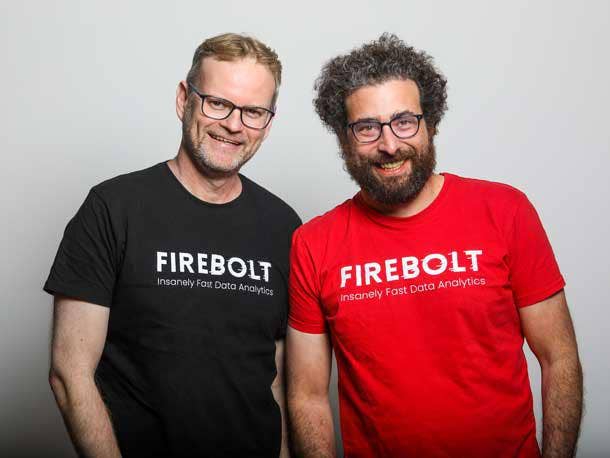Firebolt Raises $100M In Funding Round, Hires Google Exec As CTO
The data warehouse startup, which now has a $1.4 billion valuation, disclosed Tuesday that it hired Google BigQuery executive Mosha Pasumansky to lead its rapidly expanding software development team.

Cloud data warehouse provider Firebolt has raised $100 million in a Series C round of funding that puts the startup’s valuation at $1.4 billion.
Firebolt will use the proceeds from the funding round to accelerate its development efforts by continuing to expand its product and engineering staff. Firebolt also said it hired Mosha Pasumansky, previously a principal engineer on Google Cloud’s BigQuery team, in 2021 to be the company’s CTO.
The funding round comes just one year after Firebolt exited stealth and brings its total funding to $269 million, including a $127 million Series B round in June 2021.
[Related: 10 Hot Big Data Companies You Should Watch In 2022]
“We are pushing the boundaries of what can be done with analytics and allow businesses to leverage data into new areas,” CEO and co-founder Eldad Farkash (pictured above right) said in an interview with CRN, emphasizing the fast response and low latency of the Firebolt data warehouse. “It opens up new use cases. We see the role of the data warehouse as a foundation for companies to build a multitude of analytic experiences.”
Firebolt is boldly competing head-to-head with industry giants like Amazon Web Services, Snowflake and Google with its cloud data warehouse system. The company emphasizes its high-performance and scalability as a competitive advantage.
And while AWS and Snowflake market their data cloud platforms for a wide range of data-related tasks, Firebolt is specifically targeting what it sees as an under-served market – developers and data engineers who build data-intensive applications and interactive analytical systems that tap into huge volumes of data.
“We focused on what we felt was the most underserved audience and organizations – the data engineers and software engineers that need to build data-intensive apps,” said Saar Biner (pictured above left), Firebolt COO and co-founder, in the interview.
Today Firebolt’s customer base currently stands at a few dozen businesses and organizations, some trying out the company’s data warehouse for basic ad hoc query applications and others already making it a core part of their core business operations. Biner said customer-facing applications are the biggest demand driver.
Firebolt has nearly doubled its employee headcount in the last 6 months to nearly 200 people in 25 countries – mostly software engineers, according to a company statement, although the company has a field team of about 20 solution architects and account executives that work with customers.
The company expects to add another 100 to 150 employees this year, especially engineers with expertise around high-performance databases, query engines and related systems.
Pasumansky was a principal engineer with Google for 10 years, including working on BigQuery, the cloud giant’s own cloud data analytics system. He joined Firebolt in July, according to his LinkedIn page.
The company is also opening an office in Seattle – largely a development hub and Pasumansky’s base – joining the company’s Tel Aviv, Israel, headquarters and an office in Munich, Germany. But Farkash noted that Firebolt planned all along to be a remote-first company – even prior to the COVID-19 pandemic.
“There is just no way to bring all that kind of domain expertise into a single office in a single location,” the CEO said. “Those days are over. It’s all about getting to the talent.”
Firebolt is also expanding its work with partners including technology companies, such as developers of business analytics and data integration tools, and systems integrators and big data consultants.
“We see that as an important growth engine for us,” Bitner said. “We are looking for those partners that can work closely with us.”
Firebolt described the new funding round as “heavily oversubscribed.” It was led by Alkeon Capital with participation from new investors Sozo Ventures and Glynn Capital and previous investors Zeev Ventures, Angular Ventures, Dawn Capital, Bessemer Venture Partners, K5 Global and TLV Partners.